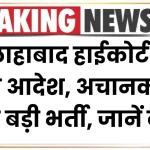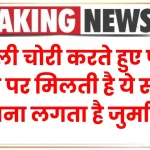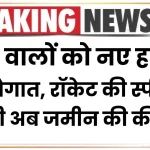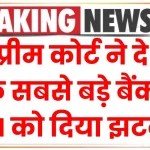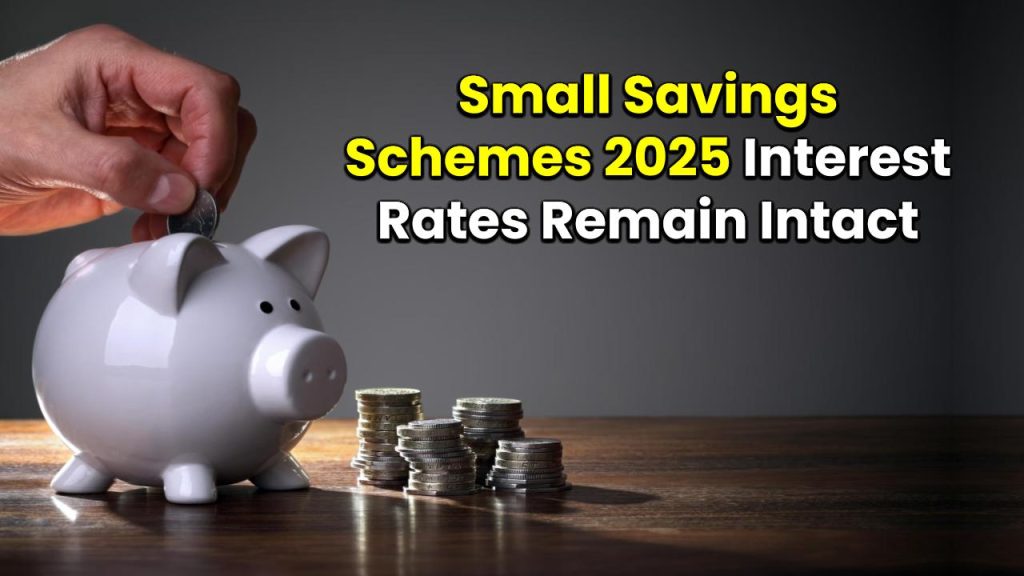
If you’re someone who relies on small savings schemes like the Public Provident Fund (PPF) or National Savings Certificate (NSC) to build a safe, long-term financial foundation, there’s important news for you. The Government of India has decided to keep interest rates unchanged for these schemes for the April–June 2025 quarter, meaning your returns will remain consistent — but also steady and reliable.
While this may not sound like a big move at first glance, it’s a key signal of stability in an otherwise fluctuating financial market. These government-backed schemes remain a trusted option for millions of Indians, especially senior citizens, salaried professionals, and small investors looking for guaranteed returns without taking market risks.
Small Savings Schemes 2025
| Point | Details |
|---|---|
| PPF Interest Rate | 7.1% (unchanged since April 2020) |
| NSC Interest Rate | 7.7% (unchanged since Jan–Mar 2024) |
| SCSS Rate | 8.2% |
| Sukanya Samriddhi Yojana (SSY) | 8.2% |
| No Rate Cuts | All schemes retain their current interest rates |
| Valid For | April 1 to June 30, 2025 |
| Authority | Ministry of Finance |
In a world full of market ups and downs, small savings schemes continue to be a pillar of financial stability for Indian households. With PPF offering 7.1% and NSC at 7.7%, the April–June 2025 quarter brings no surprises — just consistent, safe returns.
Whether you’re planning for your child’s future, your retirement, or just looking for a no-risk investment, these schemes offer a blend of security, stability, and simplicity — exactly what most Indian savers need.
What Are Small Savings Schemes and Why Are They Important?
Small savings schemes are government-sponsored financial products designed to encourage savings among individuals with low to moderate income levels. These are safe, tax-efficient, and guarantee fixed returns — making them particularly attractive in times of market uncertainty.
These schemes include:
- PPF (Public Provident Fund)
- NSC (National Savings Certificate)
- Senior Citizen Savings Scheme (SCSS)
- Sukanya Samriddhi Yojana (SSY)
- Kisan Vikas Patra (KVP)
- Post Office Time Deposits (1-5 years)
What sets them apart is their sovereign backing, which means your money is virtually risk-free.
see also: Depositing ₹1000, ₹2000, ₹5000 and ₹10,000 Will Give Such Huge Returns
PPF and NSC Interest Rates Remain the Same: What It Means for You
Let’s take a closer look at the two most popular schemes — PPF and NSC:
Public Provident Fund (PPF) – 7.1%
- Minimum investment: ₹500/year
- Maximum investment: ₹1.5 lakh/year
- Lock-in period: 15 years
- Interest: 7.1% annually (compounded yearly)
- Tax Benefits: Under Section 80C of the Income Tax Act
Despite inflation and rising repo rates, the PPF interest rate has remained constant since April 2020. This consistency makes it a top choice for long-term, tax-saving investment.
Example:
If you invest ₹1.5 lakh every year for 15 years, you’ll accumulate around ₹40.68 lakh, thanks to the power of compounding at 7.1% annually.
National Savings Certificate (NSC) – 7.7%
- Minimum investment: ₹1,000 (no max limit)
- Lock-in period: 5 years
- Interest: 7.7% annually (compounded, payable at maturity)
- Tax Benefits: Section 80C deduction
Example:
A ₹1 lakh investment will grow to ₹1,45,877 in 5 years — fully guaranteed.
Why the Interest Rates Were Not Changed
Every quarter, the government reviews rates for small savings schemes based on recommendations from the Shyamala Gopinath Committee. The committee advises aligning these with yields on comparable government securities (G-secs), plus a spread of 25 to 100 basis points (0.25% to 1%).
In the current scenario, even though G-sec yields have slightly risen, the Finance Ministry chose to maintain status quo, likely to:
- Encourage continued public investment in these schemes
- Support household savings amid ongoing economic recovery
- Avoid excessive volatility in long-term personal finance planning
Full List of Interest Rates (April–June 2025)
| Scheme Name | Interest Rate | Compounding Frequency |
|---|---|---|
| Public Provident Fund (PPF) | 7.1% | Yearly |
| National Savings Certificate (NSC) | 7.7% | Yearly (Paid at maturity) |
| Senior Citizen Savings Scheme (SCSS) | 8.2% | Quarterly |
| Sukanya Samriddhi Yojana (SSY) | 8.2% | Yearly |
| Kisan Vikas Patra (KVP) | 7.5% | Matures in 115 months |
| Post Office RD (5 years) | 6.7% | Quarterly |
| 1-Year Time Deposit | 6.9% | Quarterly |
| 2-Year Time Deposit | 7.0% | Quarterly |
| 3-Year Time Deposit | 7.1% | Quarterly |
| 5-Year Time Deposit | 7.5% | Quarterly |
| Monthly Income Scheme (MIS) | 7.4% | Monthly |
How Should You Choose the Right Scheme?
Here’s a quick guide to match your financial goals with the right scheme:
For Long-Term Goals (Child’s Education, Retirement)
- Go for: PPF or Sukanya Samriddhi Yojana
- Why: Long maturity, tax benefits, stable returns
For Retirees or Fixed Income Needs
- Go for: SCSS or Monthly Income Scheme
- Why: Regular income and high safety
For Mid-Term Goals (5 years)
- Go for: NSC or Post Office Time Deposit (5 years)
- Why: Moderate lock-in, better than bank FDs
For Rural Investors
- Go for: Kisan Vikas Patra
- Why: Simple, no need for regular contributions
see also: Know How Much Interest You’ll Get on ₹1 Lakh, ₹2 Lakh & ₹3 Lakh Deposits
Tax Benefits You Should Know
Most small savings schemes come under Section 80C, which allows you to deduct up to ₹1.5 lakh/year from your taxable income.
| Scheme | 80C Eligible? | Interest Taxable? |
|---|---|---|
| PPF | Yes | Yes |
| NSC | Yes | Yes (but reinvested interest is eligible for 80C) |
| SCSS | Yes | Yes |
| SSY | Yes | No |
| Time Deposits (5 years) | Yes | Yes |
Small Savings Schemes 2025 FAQs
Q. What is the safest small savings scheme in India?
PPF and SSY are considered among the safest as they are backed by the Government of India and offer tax-free returns.
Q. Can I invest in multiple small savings schemes simultaneously?
Yes, you can invest in more than one scheme, as long as you follow individual scheme limits and tax rules under Section 80C.
Q. How often are small savings scheme rates revised?
Interest rates are reviewed every quarter — in March, June, September, and December — by the Ministry of Finance.
Q. Are post office savings schemes better than bank FDs?
Generally, yes, because they offer slightly higher interest rates, especially in 5-year and senior citizen categories, along with tax-saving benefits.
Q. Where can I check the latest official interest rates?
You can visit the National Savings Institute for official notifications and updated rate charts.




